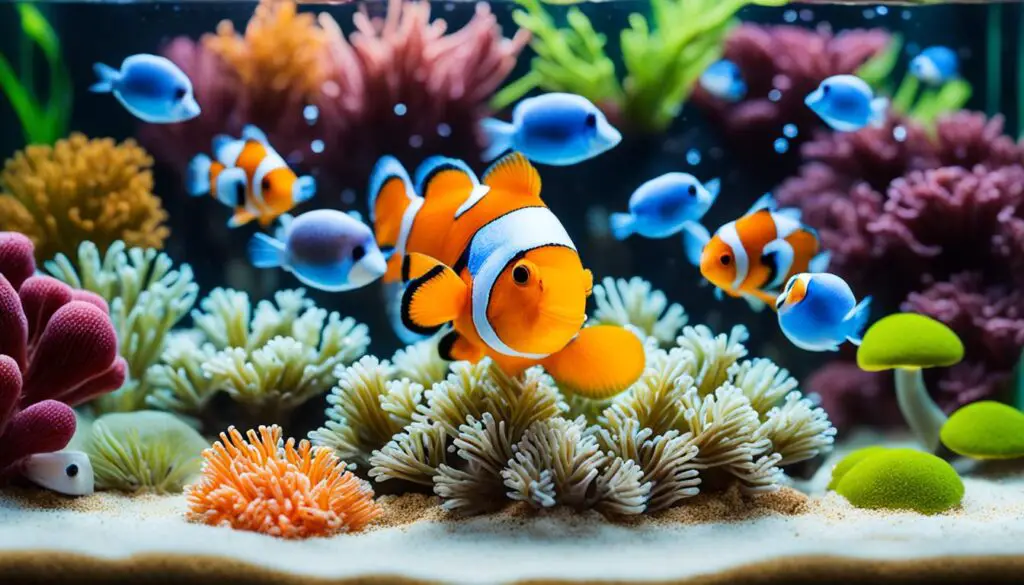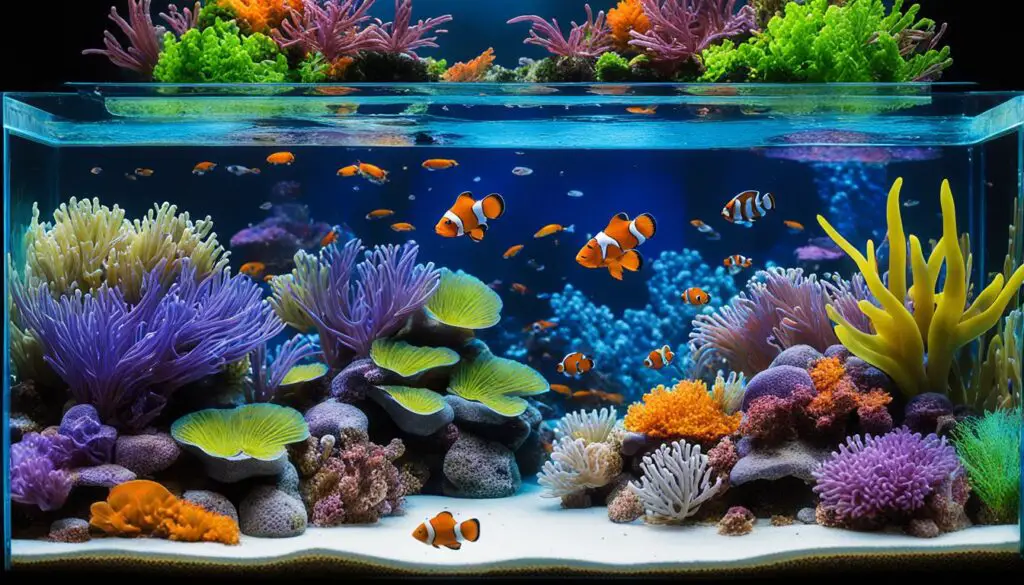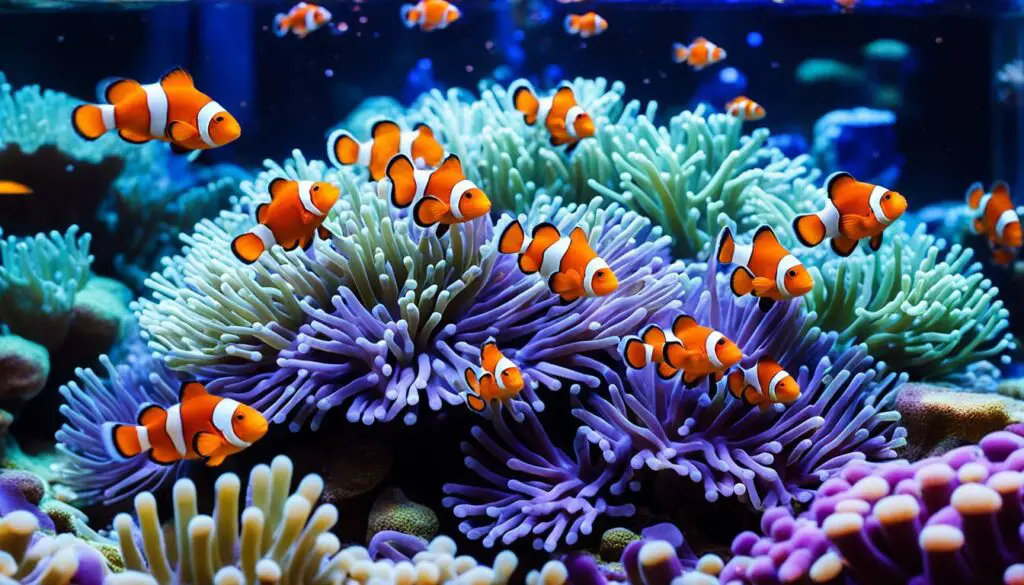What Vegetables Can Hermit Crabs Eat

Introduction
What Vegetables Can Hermit Crabs Eat: Hermit crabs are intriguing crustaceans known for their unique habit of adopting abandoned shells as portable homes. These captivating creatures, often kept as pets, have specific dietary requirements to thrive in captivity. While they are primarily omnivores, they particularly enjoy a variety of vegetables as part of their diet.
Vegetables offer hermit crabs essential vitamins, minerals, and fiber that contribute to their overall health and well-being of marine life. These small wonders can enjoy a diverse selection of vegetables, providing both nutrition and enrichment to their daily lives. Leafy greens such as lettuce, kale, spinach, and Swiss chard are excellent choices, supplying vital nutrients. Carrots, cucumbers, and bell peppers add color and flavor to their diet while providing vitamins.
As a responsible hermit crab owner, it is crucial to chop these vegetables into small, manageable pieces to prevent choking and ensure easy consumption. Balancing their diet with proteins and calcium sources while providing fresh, dechlorinated water for drinking and soaking will ensure the longevity and vibrancy of these unique pets.
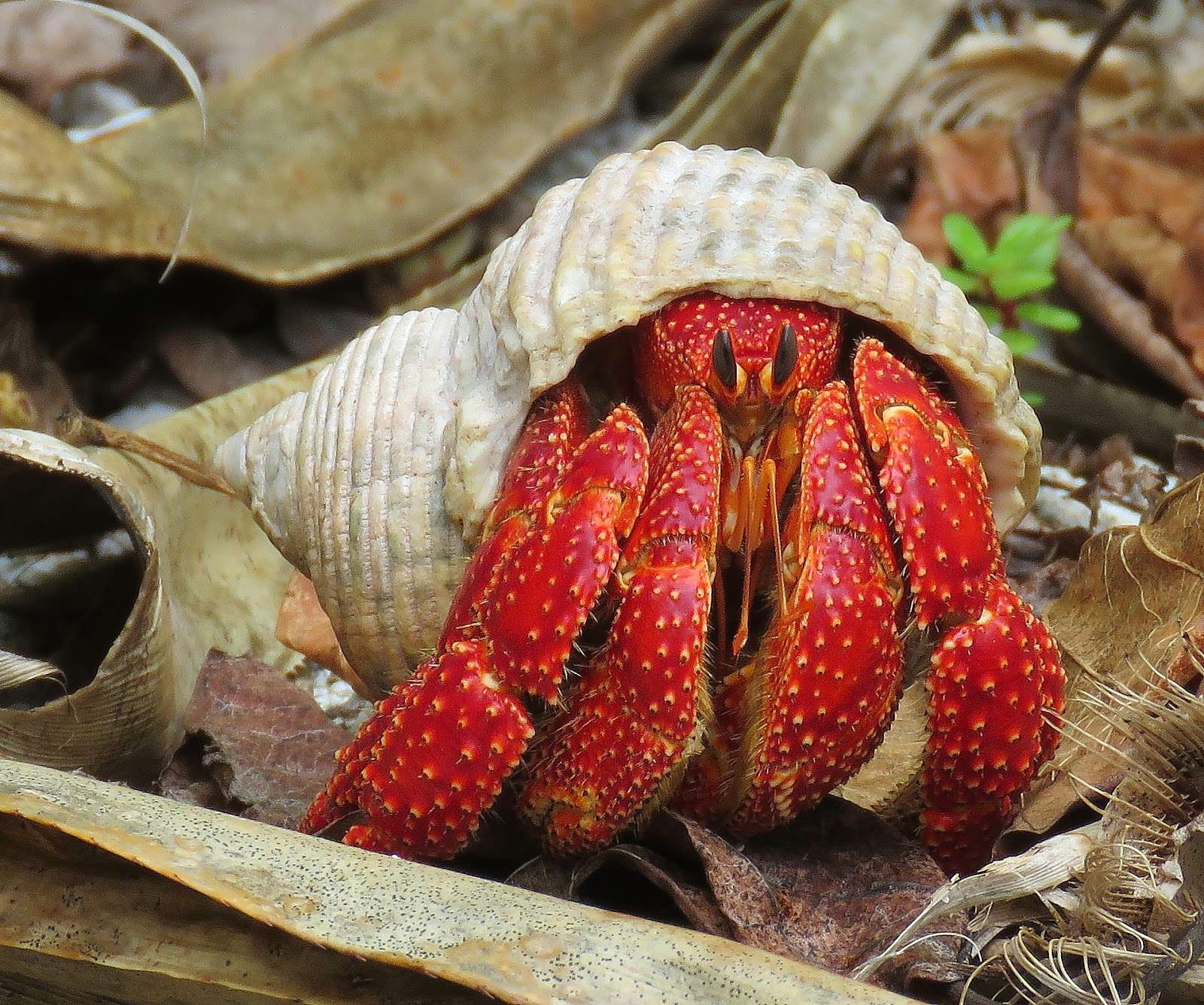
Can hermit crabs eat onions?
In general, avoid onion, garlic and citrus. When picking any kind of dried meat it is critical to look at the ingredient list for a pesticide called Ethoxyquin. It is a common preservative in many commercial hermit crab and fish foods and is poisonous to your crabs.
Onions, whether raw or cooked, are not suitable for hermit crabs. Onions contain compounds called thiosulfates, which can be toxic to a wide range of animals, including hermit crabs.
Consuming onions can lead to various health issues for hermit crabs, including digestive problems, stomach discomfort, and even toxicity. These adverse effects can harm their overall well-being and potentially be fatal in severe cases.
To ensure the health and safety of your hermit crabs, it’s crucial to avoid feeding them any foods that are known to be toxic or harmful. Instead, focus on providing a diet that includes safe and nutritious options like leafy greens, carrots, cucumbers, bell peppers, zucchini, and other vegetables that are suitable for their dietary needs.
Always research and double-check the suitability of any food item before offering it to your hermit crabs. Providing a balanced and appropriate diet is essential to ensure the longevity and vitality of these unique and fascinating pets. If you have any doubts about the suitability of a particular food item, it’s best to err on the side of caution and avoid feeding it to your hermit crabs.
Can hermit crabs eat rice?
Crabs can eat coral and sea shells. Uncooked rice is not a problem for them, and has more nutrients than the cooked version. Brown rice is better than white. Everything but the cornmeal are excellent sources of alternative calcium and b-complex vitamins as well as trace minerals.
Hermit crabs can eat rice, but it should be given in moderation as an occasional treat rather than a primary food source. Rice can be a suitable to their diet when cooked and prepared correctly.
Cooked Rice: Hermit crabs should only be given cooked rice. Uncooked rice is difficult for them to digest and may lead to digestive issues.
Plain and Unseasoned: Offer plain, unseasoned cooked rice. Avoid adding any salt, spices, or sauces, as these can be harmful to hermit crabs.
Small Portions: Hermit crabs are small creatures, so be sure to provide rice in small, manageable portions. You can break it into tiny pieces to make it easier for them to eat.
Variety is Key: While rice can be a part of their diet, A mix of vegetables, protein sources, and calcium supplements (like crushed eggshells or cuttlebone) should be their main diet.
Freshness: Ensure that the rice is fresh and hasn’t been sitting out for too long. Remove any uneaten rice promptly to maintain a clean environment.
Hermit crabs can enjoy cooked rice as an occasional treat, but it should not replace the core components of their diet. A well-rounded diet that includes a variety of vegetables, proteins, and calcium sources is essential to meet their nutritional needs and maintain their overall health and well-being.
What can I feed a hermit crab?
Hermit crabs eat pellet food, supplemented with vegetables and fruit. Hermit crabs take small bites and eat very slowly, usually at night. Small crabs sometimes don’t have claws big enough to grab onto pellet-type food. Feed small crabs 1 teaspoon of powdered hermit crab food, or pellets crushed into powder.
Feeding a hermit crab a balanced and nutritious diet is essential for its health and well-being. Hermit crabs are omnivorous, which means they can eat a variety of foods. Here’s a comprehensive list of what you can feed your hermit crab:
Commercial Hermit Crab Food: High-quality commercial hermit crab food is designed to meet their nutritional needs. Look for brands that offer a balanced mix of pellets or granules.
Fresh Vegetables: Offer a variety of fresh vegetables, such as leafy greens (lettuce, kale, spinach), carrots, cucumbers, bell peppers, zucchini, and peas. These provide essential vitamins and minerals.
Proteins: Hermit crabs need protein sources in their diet. You can provide small amounts of cooked meat (chicken, turkey, shrimp) or seafood (like fish flakes).
Eggs: Hard-boiled or scrambled eggs can be an excellent source of protein. Make sure to offer them in small portions.
Fruits: While fruits should be given sparingly due to their high sugar content, small pieces of apple, banana, or berries can be offered occasionally.
Seaweed and Algae: Dried seaweed or nori (sushi seaweed) is rich in minerals and is a great to their diet.
Calcium Sources: Hermit crabs require calcium for their exoskeleton health. Provide crushed eggshells, cuttlebone, or commercial calcium supplements.
Clean Water: Always offer a shallow dish of fresh, dechlorinated water for drinking and soaking. Ensure the water is changed regularly to maintain cleanliness.
Mineral Blocks: Mineral blocks designed for hermit crabs can provide essential minerals.
Herbs: Fresh herbs like cilantro and parsley can be given in small amounts to add variety to their diet.
Manageable pieces, as hermit crabs have small mouths and can have difficulty with larger pieces, remove any uneaten food promptly to maintain a clean enclosure. A well-balanced diet is crucial for the health, longevity, and vitality of your hermit crab.
Can hermit crabs eat boiled eggs?
Pulverize some of the egg shell and be sure to include it as well. Egg can also be hard boiled and offered with a little sea salt, or chopped into some other food. Grains are good for crabs as they are high in calcium and other nutrients.
Hermit crabs can eat boiled eggs, and they are a valuable source of protein and calcium for these fascinating crustaceans. Here’s how to safely incorporate boiled eggs into your hermit crab’s diet:
Preparation: Boil an egg until it’s fully cooked, typically around 10-12 minutes. Ensure that it’s hard-boiled and there’s no runny yolk.
Cooling and Peeling: Allow the boiled egg to cool completely before handling it. Once cool, peel the eggshell and discard it.
Serving Size: Hermit crabs are small creatures, so you should only offer them a tiny portion of the boiled egg. A small piece, approximately the size of their claw or smaller, is sufficient.
Frequency: You can provide boiled eggs as an occasional treat rather than a daily staple. A few times a month is typically enough to supplement their diet.
Variety: While eggs are a great protein source, fruits, and calcium sources (such as crushed eggshells or cuttlebone).
Freshness: Remove any uneaten egg promptly to maintain a clean and hygienic enclosure.
Boiled eggs are not only rich in protein but also provide essential calcium, which is crucial for the health of hermit crabs’ exoskeletons. They can be a valuable to their diet when offered in moderation.
Preferences may vary from one crab to another. Offering a variety of foods will help ensure they receive a well-rounded and nutritious diet, contributing to their overall health and vitality.
Can my hermit crab eat chicken?
Hermit crabs are scavengers, so it’s important to feed them the types of food they would find in the wild; particularly a variety of fruit, vegetables, protein and fat. My crabs really love coconut, bananas, strawberries, shrimp, chicken, egg, red peppers, squash, dates, avocado, and chia seeds.
Your hermit crab can eat chicken, but it should be given in moderation and with some precautions. Here’s what you need to know about feeding chicken to your hermit crab:
Cooked Chicken: Always offer your hermit crab cooked chicken. Raw chicken is not safe for consumption and can lead to health issues.
Small Portions: Hermit crabs are small creatures with tiny mouths, so make sure to provide very small portions of chicken. Cut it into pieces that are no larger than their claw or smaller.
Unseasoned: Avoid adding any seasonings, salt, or spices to the chicken. Plain, unseasoned chicken is the safest option.
Protein Source: Chicken can serve as a valuable protein source for your hermit crab. Protein is essential for their growth and overall health.
Variety: While chicken can be part of their diet, it’s crucial to offer a diverse range of foods, including vegetables, fruits, and calcium sources, to ensure a well-balanced diet.
Freshness: Remove any uneaten chicken promptly to maintain cleanliness in their enclosure.
Some may eagerly accept chicken, while others may show less interest. Pay attention to your crab’s eating habits and preferences to tailor its diet accordingly.
Providing a varied and nutritious diet is key to maintaining the health and vitality of your hermit crab dechlorinated water for drinking and soaking as well, and make sure the environment in their enclosure remains clean and suitable for their well-being.
Do hermit crabs eat potatoes?
Try a variety of vegetables but avoid starchy vegetables such as potatoes and stay away from iceberg lettuce as it is of very low nutritional value. Crabs may really like salty, fatty, or sugary snacks such as pretzels, chips, and sweetened cereal but these should be avoided.
Hermit crabs can eat potatoes, Potatoes can be a part of their diet when prepared correctly, but there are some considerations to keep in mind:
Cooked Potatoes: Always provide hermit crabs with cooked potatoes. Raw potatoes are not suitable for consumption and can be toxic to them.
Plain and Unseasoned: Offer plain, unseasoned cooked potatoes. Avoid adding any salt, spices, or butter, as these additives can be harmful to hermit crabs.
Small Portions: Hermit crabs are small creatures with tiny mouths. Cut the potatoes into very small pieces to make it easier for them to eat and prevent choking.
Variety: While potatoes can be included in their diet, they should not be a primary food source. Hermit crabs require a diverse range of foods to meet their nutritional needs, including vegetables, fruits, proteins, and calcium sources.
Limit Starchy Foods: Potatoes are starchy, so offer them in moderation. Too much starch in their diet may not be beneficial for their health.
Freshness: Remove any uneaten potato promptly to maintain cleanliness in their enclosure.
Some may readily accept potatoes, while others may show less interest. Observing their eating habits and preferences will help you tailor their diet to suit their individual needs.
To ensure the overall health and vitality of your hermit crab, provide a well-balanced diet that includes a variety of foods, fresh water for drinking and soaking, and a clean and suitable environment in their enclosure.
Do hermit crabs drink milk?
In the meantime, there have been no short term adverse effects, so feel free to experiment with offering your crabs an occasional treat of milk, or yogurt, or butter-basted turkey skin.
And it’s not suitable or safe to offer them dairy products like milk. Hermit crabs are primarily marine creatures, and their natural diet consists of a variety of foods found in their coastal and marine environments.
Milk is a product of mammals and contains lactose, a type of sugar that many animals, including hermit crabs, cannot digest properly. Offering dairy products to hermit crabs can lead to digestive problems, stomach discomfort, and diarrhea. It can be harmful to their health.
Hermit crabs obtain their hydration primarily through moisture in their environment, such as humidity and damp substrate. Providing a shallow dish of fresh, dechlorinated water for them to drink and soak in is essential for their well-being.
To ensure the health and well-being of your hermit crab, such as vegetables, fruits, proteins, and calcium sources, maintaining the appropriate environmental conditions, including temperature, humidity, and substrate, is crucial for their overall health and vitality. Always avoid offering them foods that are not part of their natural diet and can potentially harm them, such as dairy products like milk.
Do hermit crabs eat everyday?
Hermit crabs need to be fed daily and in little amounts at a time to ensure the food is fresh. Suitable foods to feed your hermit crab are fish pellets, breads, cereals, apples and other fruits, and shredded coconut. Make sure any food that isn’t eaten that day is removed.
Hermit crabs do not need to eat every day, and their feeding frequency can vary based on several factors. Their feeding schedule should take into account their size, activity level, and individual preferences. Here are some regarding the feeding frequency for hermit crabs:
Size and Age: Young, growing hermit crabs may need to eat more frequently than adult crabs. Small hermit crabs typically eat less than larger ones.
Activity Level: Hermit crabs tend to be more active during the evening and nighttime hours. You may notice them becoming more active and interested in food during these times.
Observation: Observe your hermit crabs’ behavior and eating habits. If they are actively exploring and searching for food, it may be a good time to offer them meal. If they appear lethargic or are hiding in their shells, they may not be interested in eating.
Balanced Diet: Focus on providing a balanced diet that includes a variety of foods like vegetables, fruits, proteins, and calcium sources. This ensures they receive the necessary nutrients without overfeeding them.
Moderation: Avoid overfeeding, as uneaten food can spoil and create an unsuitable environment in their enclosure. Remove any uneaten food promptly.
Hydration: Hermit crabs obtain moisture from their environment, so it’s essential to provide a shallow dish of fresh, dechlorinated water for drinking and soaking at all times.
In general, offering food every two to three days is a reasonable starting point for most hermit crabs. However, individual hermit crabs may have unique feeding preferences and needs. Regular observation and adjusting their feeding schedule based on their behavior and appetite can help ensure their overall health and well-being.
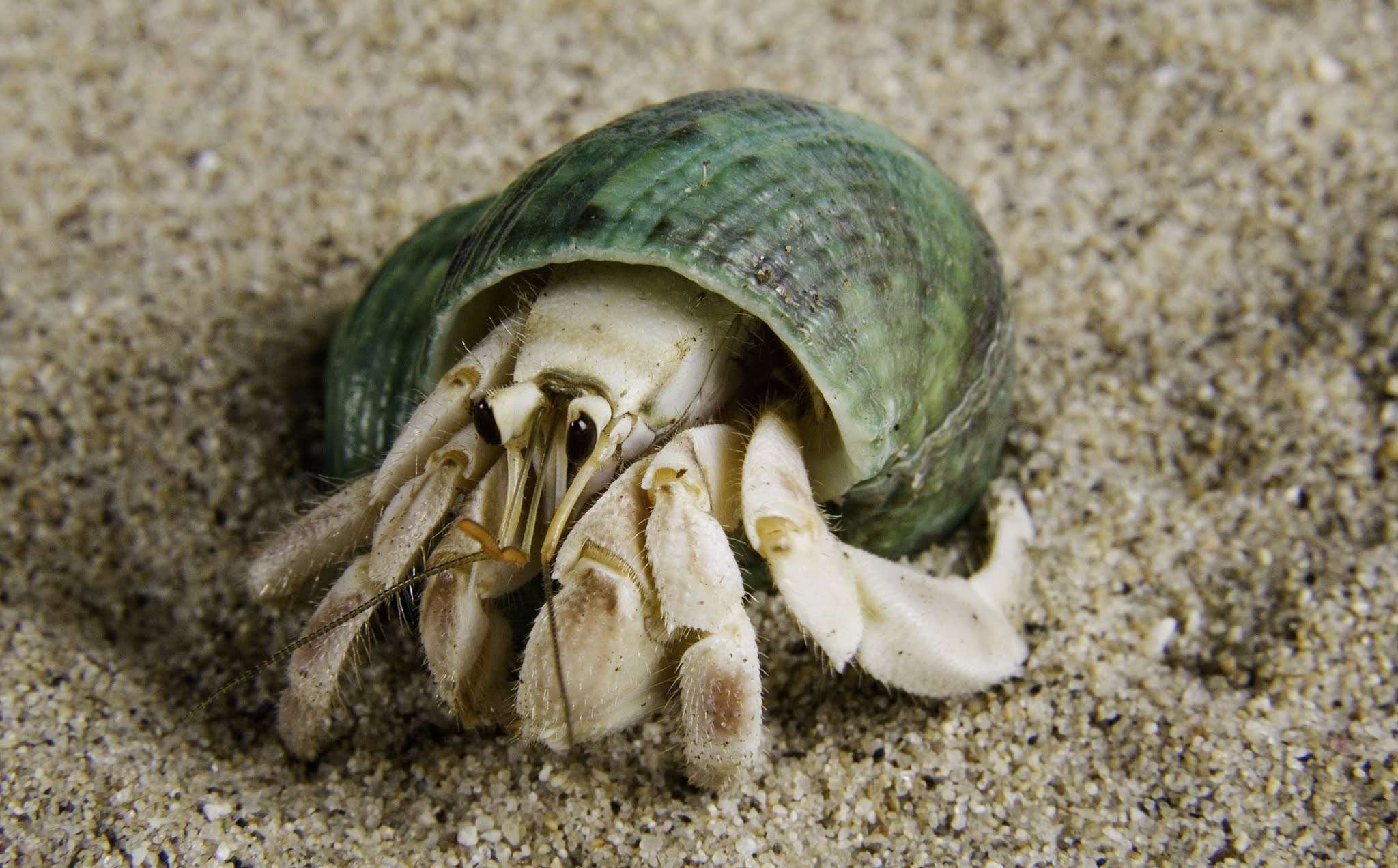
Conclusion
Understanding the vegetables that hermit crabs can eat is vital for their well-being in captivity. These intriguing crustaceans, with their penchant for adopting shells as portable homes, rely on a balanced diet to thrive. The assortment of vegetables available for their consumption not only caters to their nutritional needs but also adds vibrancy to their lives.
By offering a mix of leafy greens, root vegetables, colorful bell peppers, and various other options, hermit crab owners can ensure a rich and diverse diet. Nature-created, providing herbs like cilantro and parsley, as well as nutrient-rich seaweed, brings added variety to their meals. Chopping vegetables into small, manageable pieces ensures safe and enjoyable eating experiences for these tiny creatures. This attention to detail is a testament to responsible hermit crab ownership.
To maintain their health, it’s essential to complement their vegetable intake with proteins and calcium sources. A well-rounded diet supports their growth and vitality. the provision of clean, dechlorinated water for drinking and soaking is vital for their overall well-being.

